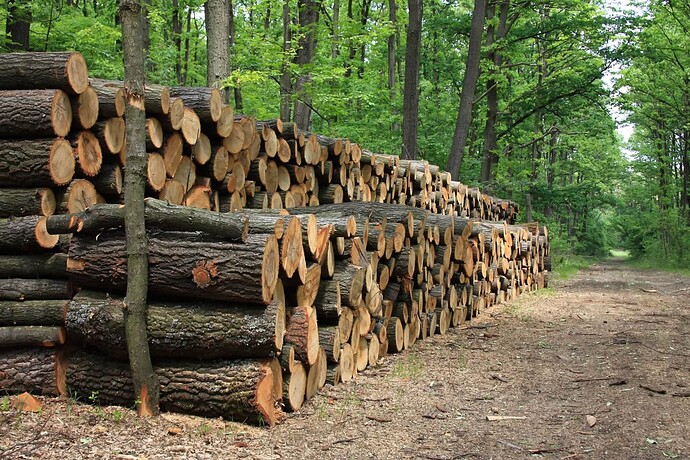Scientists aim to stop sanctioned Russian timber from entering Europe by mapping trees’ chemical fingerprints. This method could help companies like IKEA avoid using illegal timber.
The Washington-based nonprofit World Forest ID is leading the effort to prevent illegal wood from entering timber supply chains. This initiative targets EU sanctions on Russian and Belarusian timber following the invasion of Ukraine. World Forest ID analyzed thousands of wood samples, using statistical models and AI to create a database that customs officials and auditors can use to verify timber origins with simple lab tests.
Furniture giant IKEA has used this database to vet suppliers, and Belgian authorities seized over 260 tons of illegally shipped Russian timber. Scaling up this project could help companies source other agricultural commodities responsibly.
Mikhail Tarasov, IKEA’s head of forestry, said to WSJ, “We are today at a stage of fully integrating this as part of our due diligence system.”
World Forest ID launched in 2021 to fight deforestation with scientific methods. The nonprofit saw an opportunity to test its approach when sanctions were imposed on Russian timber. Tracking illegal timber is challenging because it can travel through multiple countries and mix with other wood before reaching the EU.
Customs agents and auditors primarily rely on paper trails and on-site visits to detect illegal timber, but these methods are costly and limited. Trade data suggest that timber suppliers in intermediary countries have evaded sanctions by re-exporting Russian wood to the EU. Before the war, IKEA sourced about 16% of its timber from Russia and Belarus, making compliance with sanctions a significant task.
World Forest ID’s rigorous sampling and testing methods have shown promise. The group uses tests to measure stable isotopes and trace elements in wood, which vary based on environmental factors. These results are spatially interpolated using advanced statistical methods and machine learning, allowing the prediction of chemical signatures for trees in unsampled areas.
A peer-reviewed paper in Nature Plants highlighted that World Forest ID’s model identified false origin claims in 40% to 60% of cases. Belgium’s federal health-and-food safety agency is using this data to back up forensic tests of timber shipments.
Growing regulations require companies to crack down on commodities linked to environmental degradation. Starting next year, companies in Europe must perform additional due diligence on timber and other commodities contributing to deforestation. World Forest ID is expanding its efforts to include soy and cacao.
